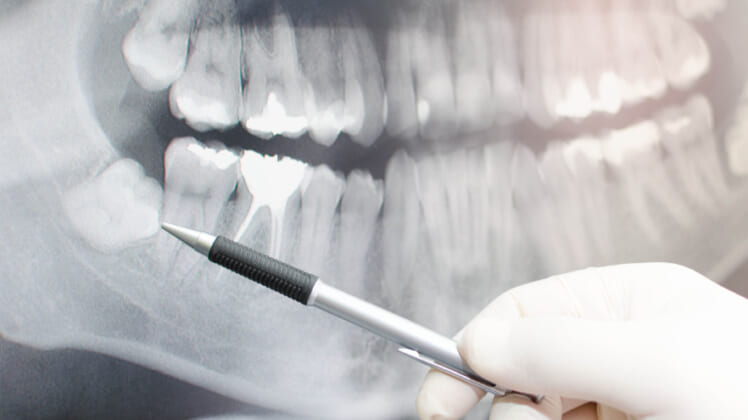How can tooth extraction lead to cardiac arrest?

A Minnesota teen is fighting for her life after suffering cardiac arrest during routine wisdom tooth extraction.
Seventeen-year-old Sydney Galleger was taken to Minnesota Amplatz Children’s Hospital, where she underwent surgery to relieve swelling in her brain after suffering multiple seizures and being placed on a ventilator.
“What started out as a normal day soon turned anything but normal,” Diane Galleger, Sydney’s mother, wrote on a CaringBridge page. “Sydney went in this morning for a simple, common wisdom teeth extraction. All went good until the very end when her blood pressure shot up and her pulse dropped and then she went into cardiac arrest,” Galleger wrote.
Sydney continues to fight for her life, but her mother acknowledged her prognosis does not look good.
I can only imagine the terrible sorrow Sydney’s family is feeling at this time. Her case calls into question what we know about routine procedures that are quite commonplace in American medicine.
Since this tragic report came out, I’ve gotten many questions about how this could have happened. Even though, right now, we know very few details about her case, we have to remember that even the simplest of procedures could have devastating consequences.
Tooth extraction is usually one of those simple procedures done in an oral surgeon’s office and on an outpatient basis, but it’s important to pay close attention to who will be performing the procedure and where it will be performed. Make sure you have a board-certified, credentialed oral surgeon who practices out of a clinic that is equipped to handle emergency medical situations.
READ: Can your tongue tell if you are sick?
While tooth extraction is quite common and often low-risk, there are some contraindications including people with uncontrolled, underlying medical conditions like diabetes, high blood pressure, recent myocardial infarction, severe anemia, leukemia, severe liver disease, blood disorders like hemophilia, and patients exhibiting any symptoms of alcohol withdrawal. In many cases, even pregnancy is contraindicated for tooth extraction.
In patients who present with oral infections, doctors will often choose to treat them with a course of antibiotics before performing surgery. Additionally, there are some people who may have an allergy to local anesthetics, and this is something that must be fully disclosed to the operating physician prior to surgery.
One of the most common risks of tooth extraction is fainting, and, while it may not be outwardly noticeable when a patient is under localized anesthesia in the chair, it’s essential that medical personnel are able to recognize the signs. Typically, if a patient is about to faint, he or she will become pale, begin to close their eyes and lower their head in dizziness. Fainting often lowers blood pressure, which, left untreated, could result in cardiac arrest. Fainting during this kind of procedure may likely happen while local anesthetics are being administered. So it’s vital that medical personnel recognize it quickly, and take proper measures by placing the patient in the recumbent position, and administering fluids and oxygen if necessary.
Other types of complications can relate to the tooth itself, whether it’s a complete extraction or a fracture of the tooth left behind, which can result in significant bleeding. And in some cases, local anesthetic toxicity can arise in an otherwise healthy patient who requires a lot of, say, lidocaine, for the procedure. This can also result in cardiac arrest.
The bottom line is this: Don’t take any procedure— no matter how routine— lightly. Make sure that the surgery is indicated, and when in doubt, always get a second opinion.
As for Sydney, I pray for her full recovery and for peace and healing for her parents.
